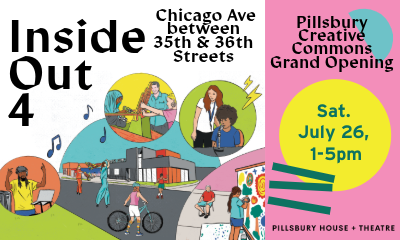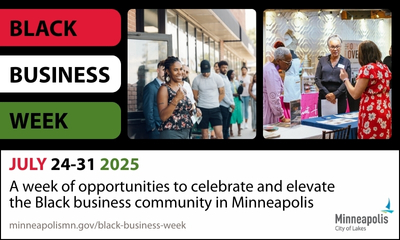“We mean to establish a Cooperative Commonwealth.”
What does that mean? And how do we get there?
A Cooperative Commonwealth is simply the recognition that we all share responsibility for the health of our planet and the health of our brothers and sisters. We are the stewards of the land and water for future generations. We are not healthy as a community if some of us are sick or poor or hungry and homeless.
Most of the concrete work in building a Cooperative Commonwealth is already happening outside of government in neighborhood organizations, food cooperatives (co-ops), Transition Towns dealing with peak oil, etc. But there is a significant role that government can play.
The rich and powerful have ruled for more than 50 years. During the Eisenhower Administration, in the 1950s, the tax rates on the rich were at 90%. There wasn’t the criminal gap between rich and poor. Working people could own their own homes and send their kids to college. Unemployment was at about 3%. But the rich wanted more. They told us that if we would only give them more tax breaks the money would trickle down and we would all get rich. We gave them tax breaks, and the only thing that trickled down was poverty. Today unemployment is at about 7%. Since 2009, 95% of all income gains have gone to the top 1%. The gap between the rich and the poor is the widest it’s been since the Great Depression. Pope Francis said in November 2013, “Some people continue to defend trickle-down theories which assume that economic growth, encouraged by a free market, will inevitably succeed in bringing about greater justice and inclusiveness in the world. This opinion, which has never been confirmed by the facts, expresses a crude and naive trust in the goodness of those wielding economic power and in the sacralized workings of the prevailing economic system. Meanwhile, the excluded are still waiting.”
So, how do we get from where we are to where we want to be?
The Minnesota Farmer Labor Party merged with the Democratic Party in 1944 as a part of the United Front strategy in World War II. Almost from the beginning the liberals in the Democratic Party tried to exclude and marginalize the radicals in the Farmer-Labor Party. Humphrey engineered the merger so he could run for mayor of Minneapolis and then for senator. In Congress, he wrote or co-sponsored anti-communist legislation; he formed the Americans for Democratic Action to exclude radicals from electoral politics; and he supported the purge of radicals from the labor movement.
Has the Democratic-Farmer-Labor (DFL) changed much from the 1950s? At the Minneapolis DFL City Convention in 2013, two Farmer-Labor Caucus DFL delegates spoke in favor of a resolution supporting the city using its powers of eminent domain to buy homes under foreclosure and sell them back to the distressed homeowners. Two other delegates spoke against the motion, and one of them said the proposal sounded like “some kind of Third Party idea”—a clear echo of the anti-communism of the ’50s.
So, why should radicals stay inside the DFL? The proposal won over about 30% of the delegates—that’s more than 300 DFL delegates who might not have thought about the concept, let alone voted to support it, had the Farmer-Labor Caucus not been advocating it as DFL delegates at that convention.
The DFL is made up of social liberals, trade unionists, feminists and anti-war and gay rights activists. It is a forum where progressive ideas are debated and discussed, and, sometimes, DFL elected officials even act on them. At this point, it seems like operating as a caucus within the DFL is the best vehicle we have to bring forth new ideas. But it’s not an absolutely exclusive relationship. In the 2013 municipal elections FLA members supported DFL candidates but also supported left alternatives to DFL candidates.
If we want a democratic and nonviolent revolution, then it seems the only viable strategy is to work through the electoral process. Direct action protests and demonstrations are still essential for agitation and education, but to change the government, we need to have access to the levers of power through candidates and elections. And, it seems at this point in Minnesota, the room with the greatest number of progressives and the best hope of transforming a capitalist jungle into a cooperative commonwealth is behind a door marked DFL.
However, not everyone in the Farmer Labor Association agrees with this strategy. Many have given up hope in the DFL and are aligned with other progressive political organizations. There will always be a healthy debate within the FLA with regard to strategic alternatives.
The Manifesto of the Communist Party by Marx and Engels contained a program that included, among other things, “a heavy progressive or graduated income tax; a national bank; the improvement of the soil generally in accordance with a common plan; free education for all children in public schools; abolition of children’s factory labor in its present form; etc., etc.” Quite radical for 1849.
The Farmer Labor Association has a program for legislation for 2014 in the Minnesota Legislature. We want: A state minimum wage increase to $15 an hour effective immediately and further increases based on the cost of living. Legislation calling for a single payer health plan, similar to Vermont, which would be an extension of Medicare for everybody. Legalization of marijuana and immediate release from prison for anyone convicted of possession of a small amount of marijuana. Immediately begin phasing out nuclear power plants at Monticello and Prairie Island, and increased state subsidies for renewable energy. Felony prosecution and cancellation of contracts with any sports organization that allows racist names to be used as slogans or mascots for professional sports teams using publicly supported stadiums.
If South Minneapolis DFL legislators can deliver on this minimal platform, then they deserve our support in the 2014 election. If they cannot, then they deserve our opposition.
























I just can’t imagine a world where staff isn’t avlilabae to lift a spoon to a person’s mouth who can’t pick up a spoon due to their disability. I can’t imagine going backwards and undoing all we have worked to do over the past several years. I think of all the work Partnership Resources has done over the years to ensure that people feel like they belong to their communities and thier physical and emotional needs are met. I don’t want the story to read, From Institutions to Independence and back to Institutions. This seems like a nightmare scenario. I don’t want to imagine the disruption and the heartbreak that this will cause clients and families if we can’t fund this program. As I was doing paperwork today I overheard a client worrying aloud about the program being shut down which tore at my heart strings remembering that their were similar heartaches in her life related to not being cared for. There has got to be an easier way to help the deficit. How about the cost of Twins tickets paying the state back for the dream stadium we all enjoy? How about lottery ticket profits paying for a greater share of what they currently do? There are many people with excess, our so called stronger members of society who talk about stewardship but don’t really want to do it if it means getting thier hands dirty or taking a relatively small cut to all they have. I never thought I would see the day when Minnesota became a land of plenty for the rich but the rest would just have to suffer.
I hope the DFL is successful.
Social conscience trumping greed? Hmm.